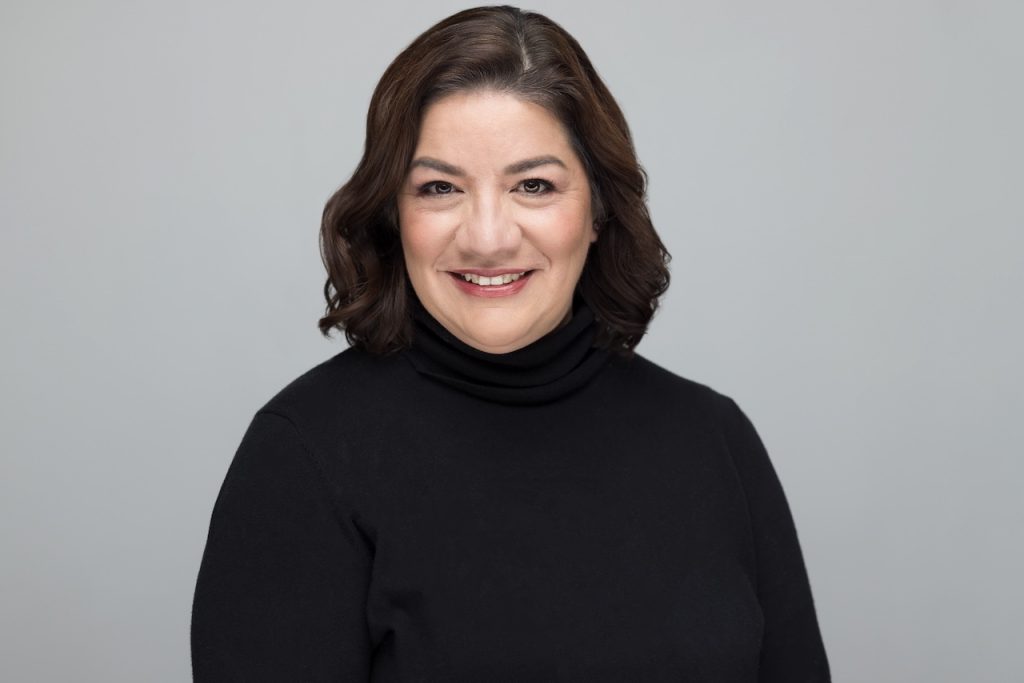
Building Community from the Ground Up: The Heart Behind Maite Arce’s Work
When Maite Arce reflects on the founding of Hispanic Access Foundation, she doesn’t begin with policy or plans. She begins with the quiet, steady example of her parents, and a commitment that began long before it even had a name.
“My parents came to the U.S. with three kids, and I was the oldest,” she shares. “It was the typical immigrant story, moving from Ensenada, Baja California to Southern California. But what made it extraordinary to me was how rooted they were in values: family, service, justice, and faith.”
Maite describes her mother as someone who “just loves to help people. She makes friends everywhere, and her generosity is incredible.” Her father, she says, had a different approach. “He likes to help people help themselves. He mentors, teaches skills, and helps others improve their lives.” Both parents gave selflessly, even with limited resources.
She recalls a moment when her mom’s employer asked, “What do you want to do when you grow up?” Maite answered, “I want to help people.” The employer laughed and said, “Knowing your family, I can see that.’”
Maite sums it up simply: “My sense of purpose comes from watching my parents be so generous with their community, even as they were figuring things out themselves. Their examples shaped everything I do.”
A Vision Born from a Gap
Before founding Hispanic Access Foundation, Arce worked at the local, state, and federal levels. What she witnessed alarmed her: decisions affecting Latino communities were often made without their input.
“It wasn’t about weakness,” she explains. “Our communities are incredibly strong. But they lack access, information, and sometimes validation. They’re not always part of the decision-making process. That needed to change.”
The organization was created with a simple but powerful goal: to ensure Latino communities have the tools, voice, and validation to lead. “Communities should be driving solutions,” she insists. “And they should be working in strong collaboration with the government, nonprofits, schools, everyone.”
That philosophy of co-creation and trust-building was inspired not just by gaps in the system, but by the untapped leadership Arce saw in her own family and neighbors growing up. “When I sat down with my parents in my late twenties to say, ‘Do you realize how much you did when I was a kid?’ They had no idea. That validation matters. It builds confidence and empowers people to lead.”
Believing in the Mission, and Herself
Launching Hispanic Access Foundation was not without its challenges. “We were building an organization from the ground up, legally and administratively, while simultaneously trying to serve community needs,” she recalls.
Even more difficult was overcoming her own internal doubt. “I had a lot of negative thoughts in those early days, thinking it might be too hard, that I couldn’t do it.”
She credits a fellowship program, which offered her a year of monthly coaching, with helping her reframe that mindset. “The same work I wanted to do in the community, I had to do with myself first. I needed to believe in my strengths and my purpose.”
Grounded in Experience, Guided by Trust
Maite shares how witnessing her parents’ struggles helped shape her understanding of the challenges communities face. “It was very hard for them,” she recalls, “because they were juggling so much. Not just family, but language, culture, and learning to navigate unfamiliar systems.”
She reflects on what could have eased that journey. “Having access to trusted, high-quality information and reliable sources of support would have made a difference. Even the smallest resources could have changed how they made decisions and planned for the future.”
That realization led Maite to recognize that trust was the cornerstone. “We started by meeting communities where they are and asking, ‘How can I help? How can I serve you?’ Always aware they had been let down before.” What she heard was consistent: We’ve been hurt, but we care deeply about our community. We need consistency. We need quality. We need follow-through.
That commitment shaped the organization’s earliest partnerships.
Over time, those relationships evolved into stronger, more collaborative networks. “We bring people together to talk about what they need, to share resources, to support each other,” she says. “Often, they ask us to help convene spaces or advocate, especially when it comes to engaging elected officials.”
When asked if the biggest challenge and the solution are one and the same because building trust requires returning to the community, Maite doesn’t hesitate. “Trust is essential,” she says. For her, trust isn’t just important; it’s the foundation on which all meaningful work must be built. Without it, efforts to support and empower communities fall short.
Where Leadership Begins
Reflecting on her legacy, Maite hopes to be remembered for investing deeply in the next generation of leaders and building an organization that serves communities for generations to come. “I want to demonstrate leadership that embraces continuous learning,” she says. “It’s okay not to have all the answers. Leadership means always improving.”
When asked how she defines leadership, Maite is clear: it begins with service. “Leadership is in service,” she says. “When we are genuine in our love and care for people, they sense that. They feel it.”
It’s the kind of leadership she learned at home. Not through titles or recognition, but in quiet acts of love and sacrifice. That legacy didn’t begin with an organization. It began with her parents.
Article by Pollyana Ramos Tucker
